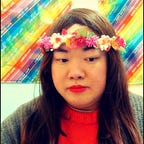On the Dialectic of Freedom: Positive and Critical Libertarianism
This is how to bridge the divide between left-libertarians and right-libertarians
Last time, I talked about the need to build a cross-spectrum alliance of various types of libertarianism, to save the libertarian brand from being devoured by the reactionary right. Traditionally, the difference between left-libertarianism and right-libertarianism was seen as rooted mainly in economic issues, and finding common ground and building bridges on economic matters is surely going to be an important part of our work going forward. However, looking at things from a higher, more philosophical level, I think the main difference between left-leaning libertarians and right-leaning libertarians is the difference between emphasizing what I call ‘positive libertarianism’ vs what I call ‘critical libertarianism’. Let me explain.
What I mean by ‘positive libertarianism’ is the idea that freedom can and should be positively advanced, and that more freedom also allows society to be improved, because rationality will prevail. This is the core foundational idea of classical liberalism, and it has been behind many major improvements in Western society in the past several centuries. The abolition of slavery, universal suffrage, the civil rights movement, the expansion of free speech norms, the anti-war movement, and the legalization of interracial marriage and gay marriage were all inspired by the positive libertarian spirit.
On the other hand, we do have to acknowledge that not all social change, including changes that have been sold to us as ‘progressive’, actually lead to more freedom. In the past decade, wokeness was promoted as an idea that would advance social justice, but it clearly leads to a loss of freedom, including most importantly, free speech and freedom of conscience. This is where what I call ‘critical libertarianism’ comes into play. Critical libertarianism is all about protecting existing, hard won freedoms from being eroded by misguided attempts at change. It seeks to critique all proposals for change, looking at ways they might intentionally or unintentionally undermine freedom. Indeed, I think a lot of classical conservative philosophy could fall under the critical libertarianism umbrella. Edmund Burke, often considered the father of conservatism, came up with his most famous ideas in the face of the authoritarian excesses of the French Revolution. More recently, I think liberal skepticism towards wokeness was another moment where a critical libertarian movement emerged.
While positive libertarianism and critical libertarianism seem like opposing forces, and they are indeed sometimes seen as in alignment with opposing sides of the political spectrum (positive libertarianism being aligned with forces seeking ‘progress’ and hence left-leaning, critical libertarianism being aligned with ‘conservative’ forces and hence right-leaning), they actually compliment each other. Both are needed to promote and safeguard freedom. If we only had positive libertarianism, the quest for freedom could be turned into its opposite by misguided steps forward. If we only had critical libertarianism, we could end up becoming so paranoid as to turn reactionary and hence authoritarian. Only an optimal balance of the two will lead to the maintenance and promotion of freedom. It’s just like how the balance between a practical progressive impulse and a moderate, rational conservative impulse lead to a healthy and productive reformism.
Once we recognize that positive libertarianism and critical libertarianism are actually both needed for freedom, and can complement each other, we should be able to recognize the same about left-libertarians and right-libertarians. Rather than seeing them as separate, unrelated things, or worse, opposing parties, we should see them as two complementary halves that make up a whole. This should be the basis on which we try to find common ground between left-libertarians and right-libertarians.
Originally published at http://taraellastylia.blogspot.com.
TaraElla is a singer-songwriter and author, who is the author of the Moral Libertarian Manifesto and the Moral Libertarian book series, which argue that liberalism is still the most moral and effective value system for the West.
She is also the author of The Trans Case Against Queer Theory and The TaraElla Story (her autobiography).
